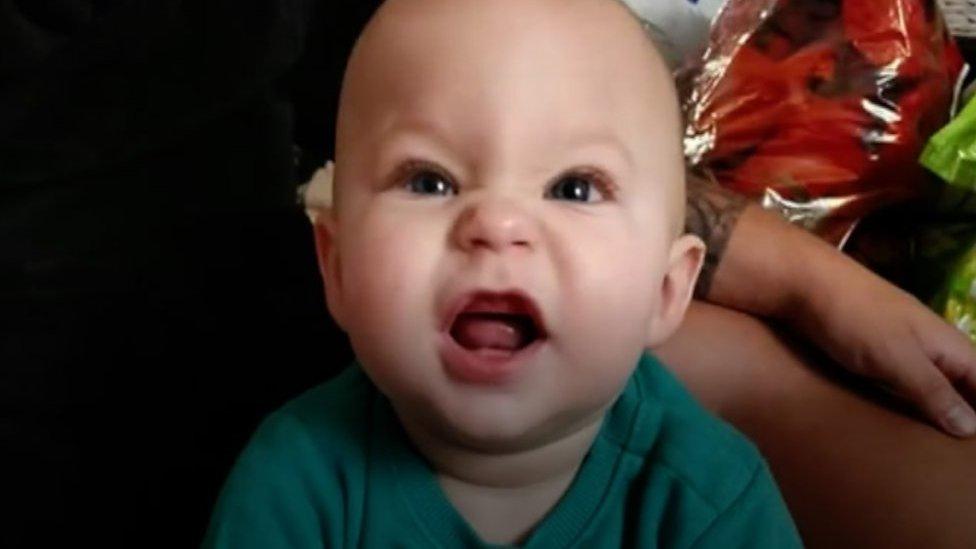Mother 'felt suicidal' after baby death news reports
- Published
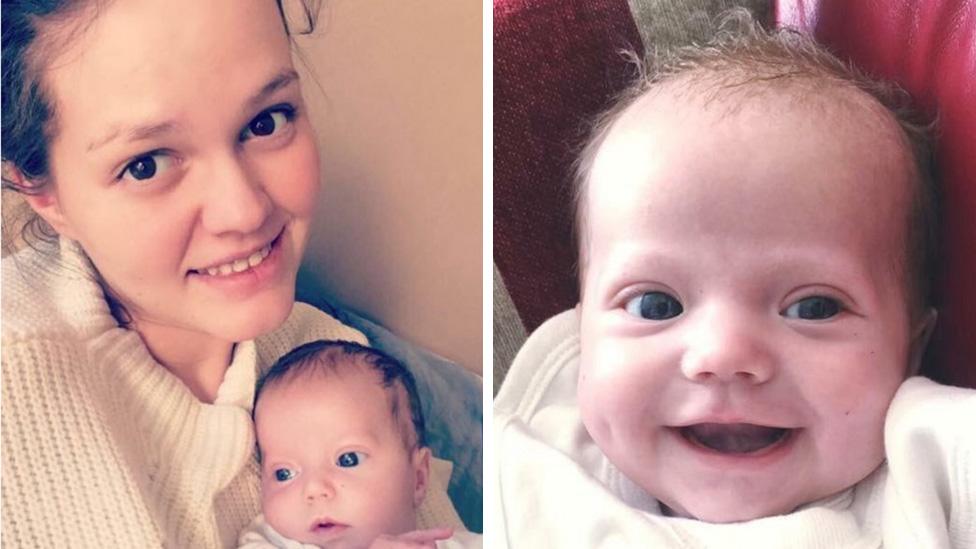
Holly Eastall and her baby son Louie who died from sudden infant death syndrome
A mother who lost her son to cot death says she wants a change in how such cases are reported after misleading headlines left her feeling "suicidal".
Holly Eastall, 23, from Kingston, south-west London, was grieving her baby when it was reported "child abuse officers" were investigating the case.
All unexplained infant deaths are probed by child protection teams.
Ms Eastall said that as a result of the reports she was accused of abusing her baby and considered suicide.
She said she was sworn at in the street by strangers, spat on and ostracised by her friends.
The reports were published just one day after her four-month-old son Louie died of sudden infant death syndrome (SIDS).
She is now calling for a change in the way child deaths are reported by journalists and has launched an online petition.
Ms Eastall wants rules put in place that would prevent the media from reporting unexplained child deaths or identifying families until there is proof of foul play.
But the Society of Editors, which fights for press freedoms, says it is not that simple - and argues media reports of infant deaths ensure fair judicial proceedings for cases which end up in court.

Sudden infant death syndrome (SIDS)
The NHS says sudden infant death syndrome (SIDS) - known as "cot death" - is the sudden, unexpected and unexplained death of an apparently healthy baby.
In the UK more than 200 babies die suddenly and unexpectedly every year.
Most deaths happen during the first six months of a baby's life.
Infants born prematurely or with a low birth weight are at greater risk.
SIDS usually occurs when a baby is asleep, although it can occasionally happen while they are awake.
Parents can reduce the risk of SIDS by not smoking while pregnant or after the baby is born, and always placing the baby on their back when they sleep.

Mother-of-three Ms Eastall said: "It really wasn't a nice thing for me to see, literally the day after my son died.
"Some of my friends turned against me, I had people in the street telling me I was disgusting.
"I had people making anonymous Facebook accounts telling me I should kill myself and I shouldn't have children."
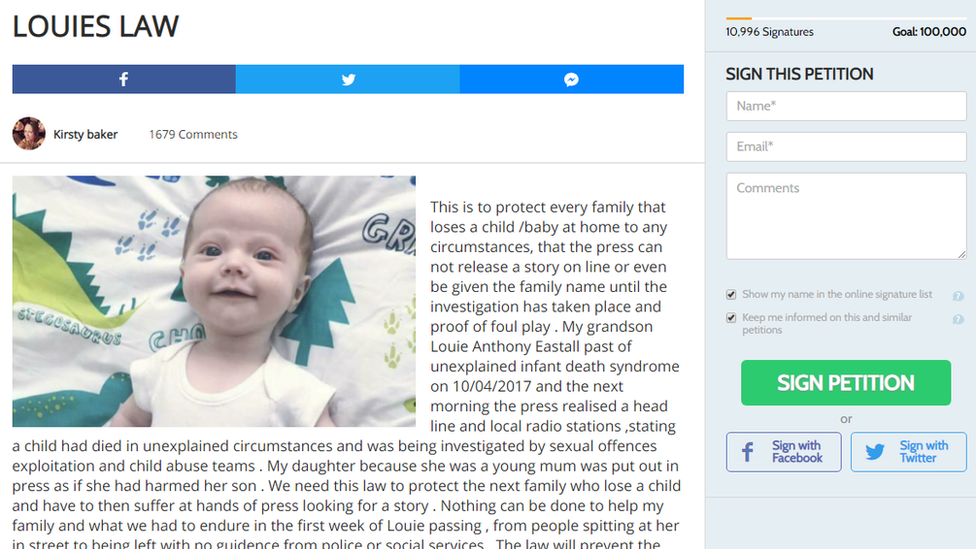
The family launched this petition calling for a change in the way child deaths are reported
She told the BBC that when she saw the reports she was so distressed she contemplated suicide.
Ms Eastall added: "They [the media] don't think about what they are doing. I wanted to kill myself when I saw it.
"If I didn't have my family, and my mum, and if I wasn't as strong as I am I don't know if I would've got through it."
Ms Eastall also claims that several of the articles published just one day after Louie's death featured pictures of her home - which she says endangered her and her other children.
She contacted the seven or eight news organisations which published the story but says she did not hear back from any of them.
After she complained one added in a sentence clarifying that all child deaths are investigated by police, but she did not receive an apology.
She added: "We set up this petition in order to help protect other families from having to face this trauma after losing a loved one."
Her petition has already been signed by more than 13,000 people.
Legal process
Ian Murray, director of the Society of Editors, said: "While no one could do other than sympathise with anyone who has to deal with the terrible circumstances of the loss of a child or any loved one, to create a situation where no deaths can be reported unless foul play is confirmed is impractical in an open and free society.
"The whole process of British law which includes investigations into deaths by the coroner is intended to take place before the eyes of the world.
"This is as much to protect those at the centre of any allegations or investigations as to ensure any victims receive justice.
"At a time when social media is rife with rumour and speculation, to inhibit the media from reporting the actual circumstances surrounding a death would be totally counter-productive."
A spokeswoman for the Lullaby Trust, which provides support for families who have lost a child to SIDS, said: "It is very important that the media consider the impact their coverage can have on a bereaved family and to ensure that they report accurately and sensitively.
"Sensationalist reporting can cause a family a great deal of additional distress during an immensely difficult time and perpetuate misunderstanding about SIDS."
Social media star Mrs Hinch threw her support behind the campaign, which hopes to garner 100,000 signatures so it can be debated in Parliament.
If you or someone you know has been affected by child bereavement, visit BBC Action Line for a list of organisations which may be able to help.
- Published13 April 2019
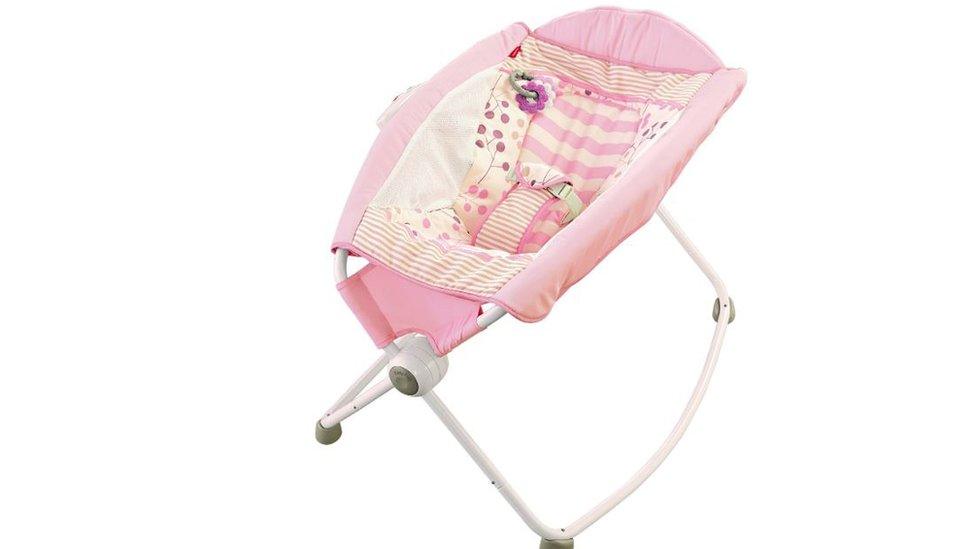
- Published21 November 2016
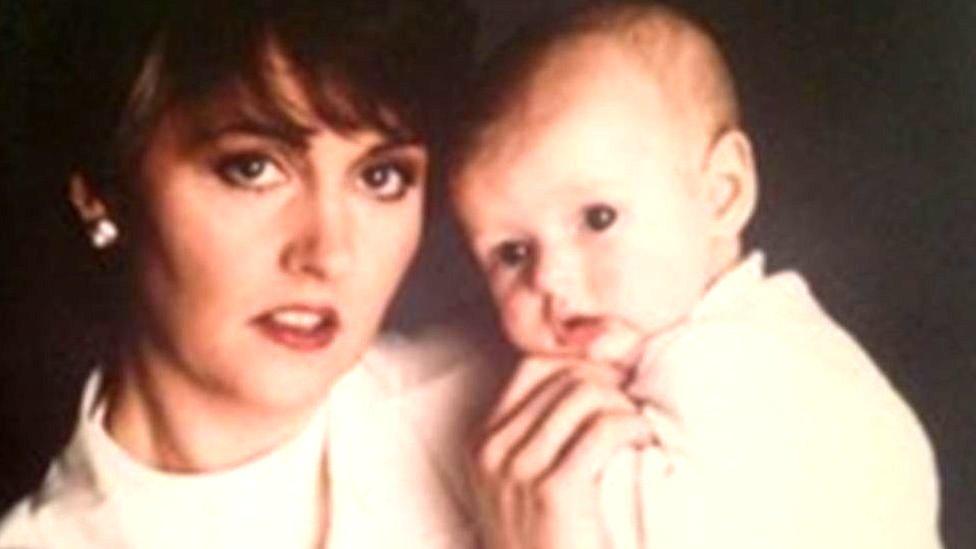
- Published4 April 2019
